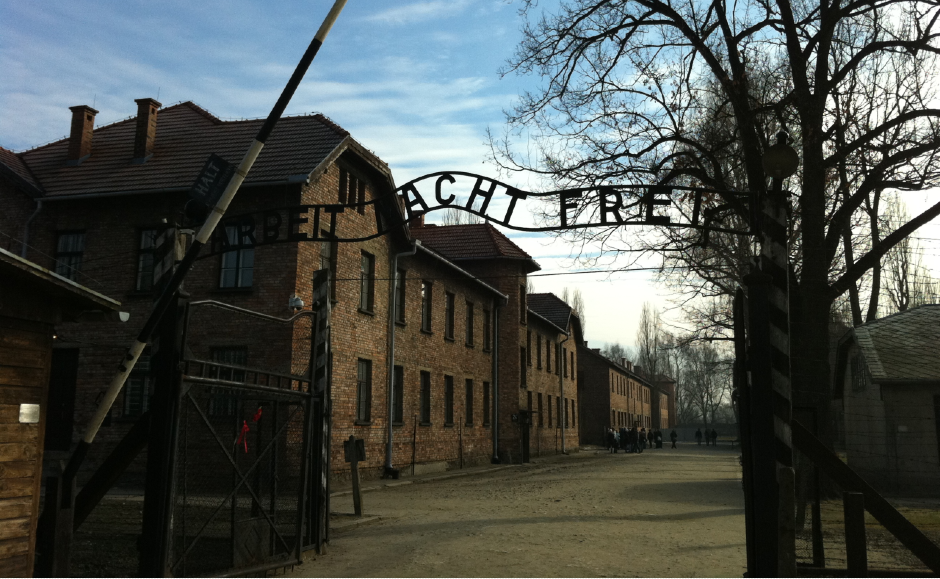Budapest honours Scots Holocaust heroine who died in Auschwitz
Published on 1 May 2024 6 minutes read
A Scot who refused to abandon Jewish school girls in her care and died in Auschwitz has been honoured in her adopted city.
A brass plate Stolpersteine in memory of Jane Haining has been embedded in the pavement at the entrance of St Columba's Church of Scotland in Budapest, Hungary.
A plaque in commemoration of the Scottish Mission School matron and the headteacher, Margit Prem, has been erected on an exterior wall of the building on Vörösmarty.
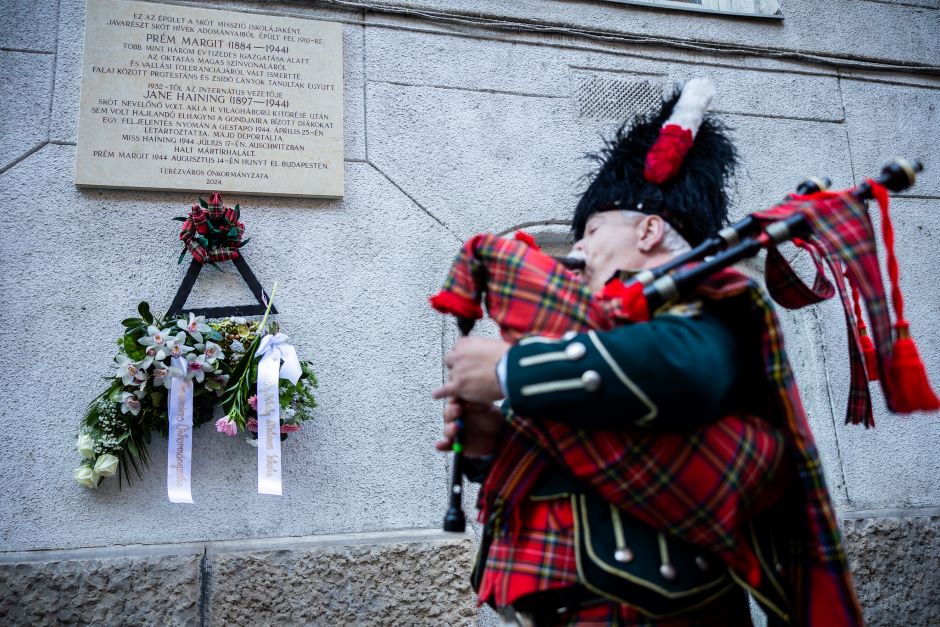
It is the first time that the two friends and allies against dark forces that persecuted Jews during the Holocaust have been publicly jointly honoured.
Members of the congregation, former pupils who knew Miss Haining, a Rabbi and a Deputy mayor attended the unveiling ceremony on 25 April.
It was a very significant date because it was on that day exactly 80 years ago that Miss Haining was arrested at the school, which was attached to the church, by "German officers" and taken away.
She was betrayed by the cook's son-in-law whom she caught eating scarce food intended for the girls.
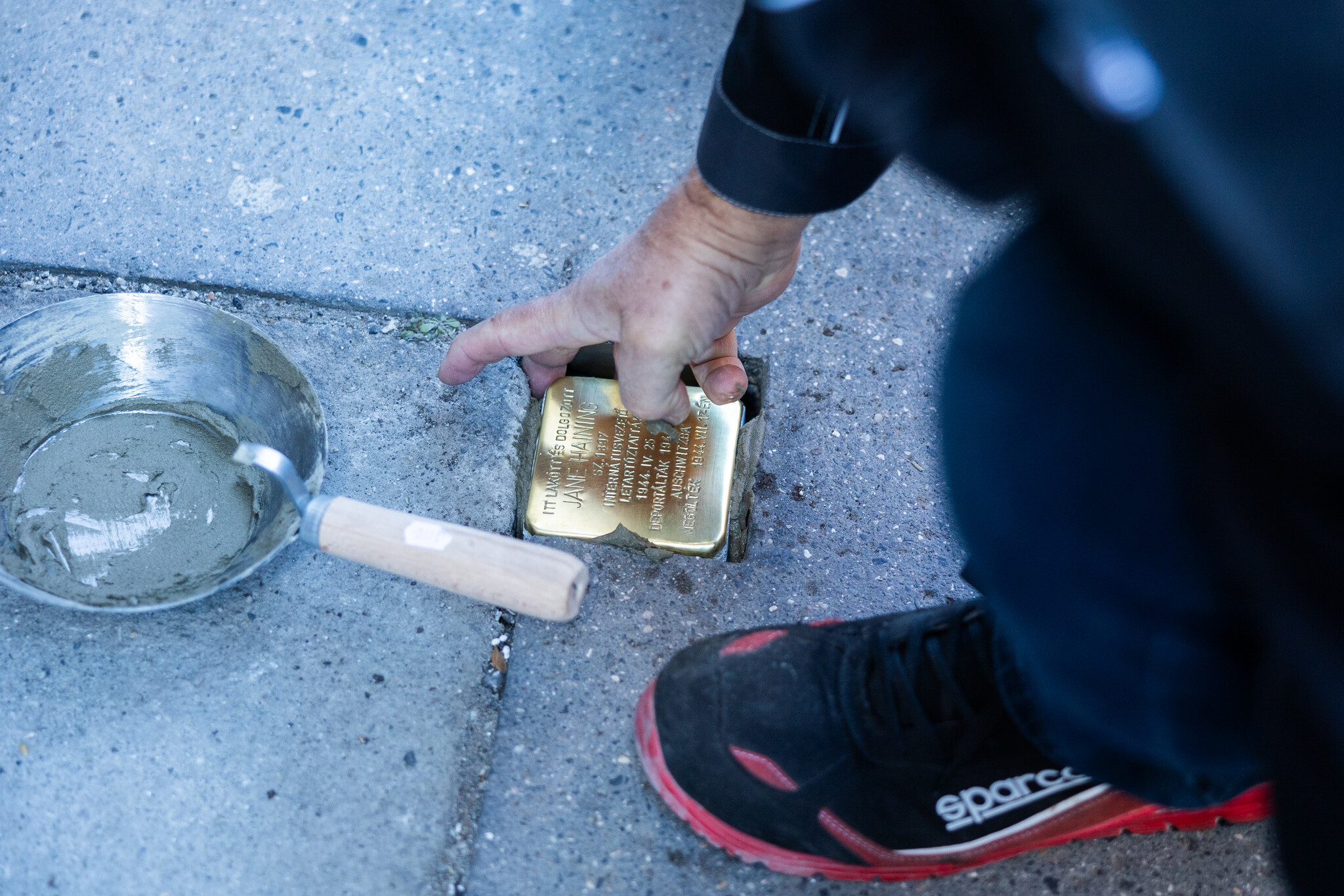
But Miss Haining, who grew up on a farm near Dunscore in Dumfriesshire, never returned to the school where she protected children, many of whom were orphans or abandoned by their parents, for more than four years.
She was charged with eight offences including working amongst the Jews, weeping when seeing the girls attend class wearing yellow stars and visiting British prisoners of war.
The former Dumfries Academy Dux, who was fluent in Hungarian and German, vehemently denied talking about or meddling in politics and after spending time imprisoned in Budapest, was transported by rail in a cattle wagon along with around 90 other people to Auschwitz-Birkenau in Nazi-occupied Poland on the 14th of May, 1944
The 47-year-old, who suffered from poor health, was given the number 79467 and likely forced into slave labour with women said to have worked in mines for 14 hours a day with a food allowance of two clear bowls of soup.
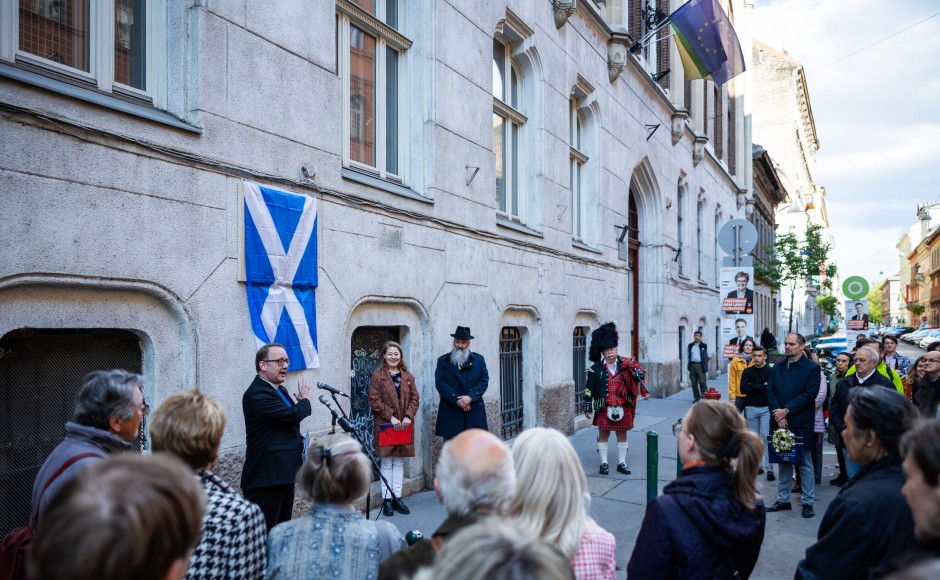
Up to 300 women are said to have slept in a single barrack.
Miss Haining died on the 17th of July 1944 with the Germans stating that she was admitted to hospital and succumbed to cachexia following intestinal catarrh.
But there are doubts to the validity of this "official" claim and it is likely that she died in a gas chamber.
Rev Aaron Stevens, minister of St Columba's Church of Scotland, highlighted the uniqueness of the plaque which states that the school, built in 1910 partly from Scottish donations, was known for its "high standards of education and its religious tolerance".
"There are other plaques to Jane Haining in the world - there is a bust commemorating Margit Prém and a park named after her but this is only memorial to the two of them together.
"When the Scottish Mission School opened here, Margit Prém was the principal of the school.
"Later, when they took Jane Haining away, it was the end of an era for that school which was closed.
"They were friends, together they made the school what it was, and in many ways both of them dedicated their lives to this school."
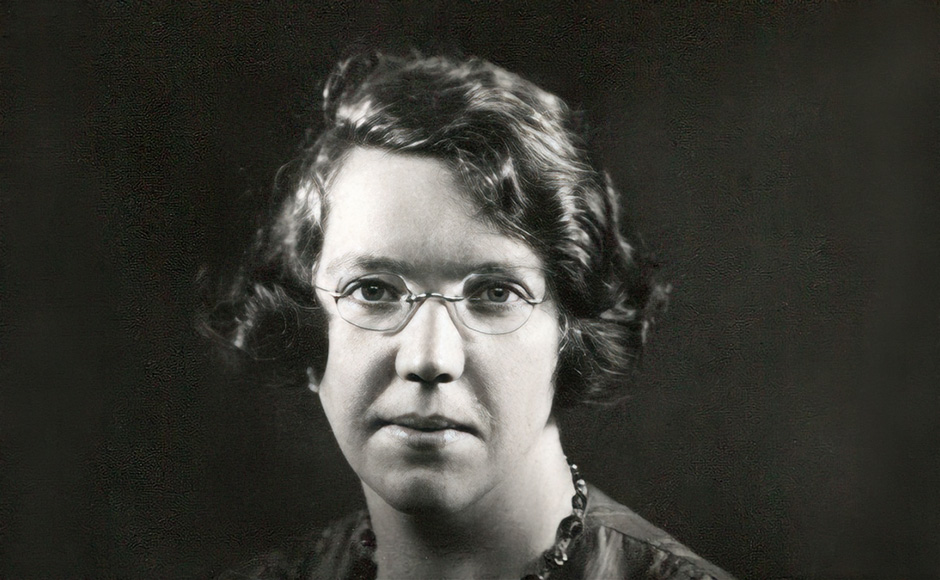
The last letter Miss Haining, who was also known as Jean, wrote from Auschwitz was to Margit Prem.
The missive, written in German and in pencil, was scribbled on a letter-form headed Konzenstrationslager Auschwitz and dated July 15, 1944, two days before she died.
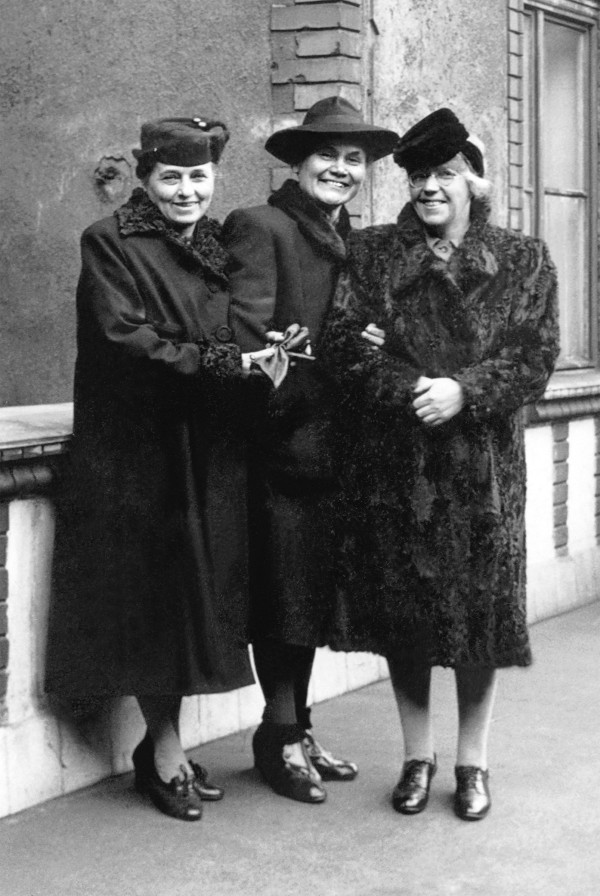
It is mainly concerned with the welfare of others, food and the practical details of the school:
It reads: "Margit, what are you thinking of doing with the flour? What is upstairs is the best... Have you used up the eggs too?"
"I think of you day and night lovingly and longingly.
"I am waiting of news of what everyone is doing, including your family, Margit. Is your old aunt still alive?
"There is not much to report from here.
"Even here on the way to heaven are mountains, but further away than ours. I send appropriate greetings to the whole family and kiss and embrace you.
"Your loving Jean."
When Miss Haining's personal effects were returned to the Scottish Mission after she died, only the door keeper was present to receive them as the staff were attending Margit Prém's funeral.
She died of an overdose on August 14, 1944.
Across Europe, there are now over 75,000 brass plate Stolpersteine memorials outside the homes or places associated with victims of the Nazi Holocaust.
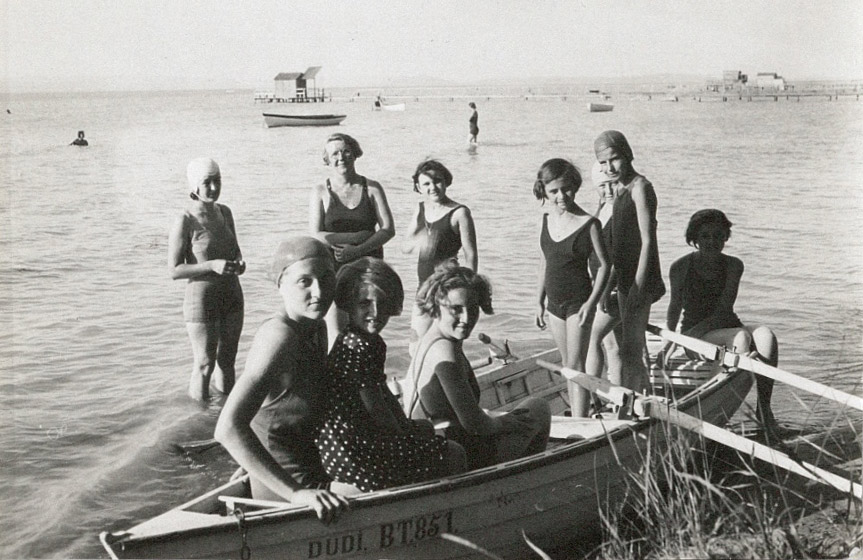
Szilvia Benedikta Temesvári, Deputy Mayor for Relations with Civil Organisations and Churches in Budapest, gave a short speech during the ceremony.
She highlighted the injustice of the so-called crimes with which Miss Haining was charged and the importance today of people from different belief systems living peacefully with one another.
Rabbi Gábor Keszler, president of the Autonomous Orthodox Jewish Community of Hungary, noted that another one of the charges launched against the Scot was that she had cried when sewing yellow stars on the uniforms of Jewish pupils.
He emphasised that one reason that we remember atrocities of the past is to make sure they are not repeated.
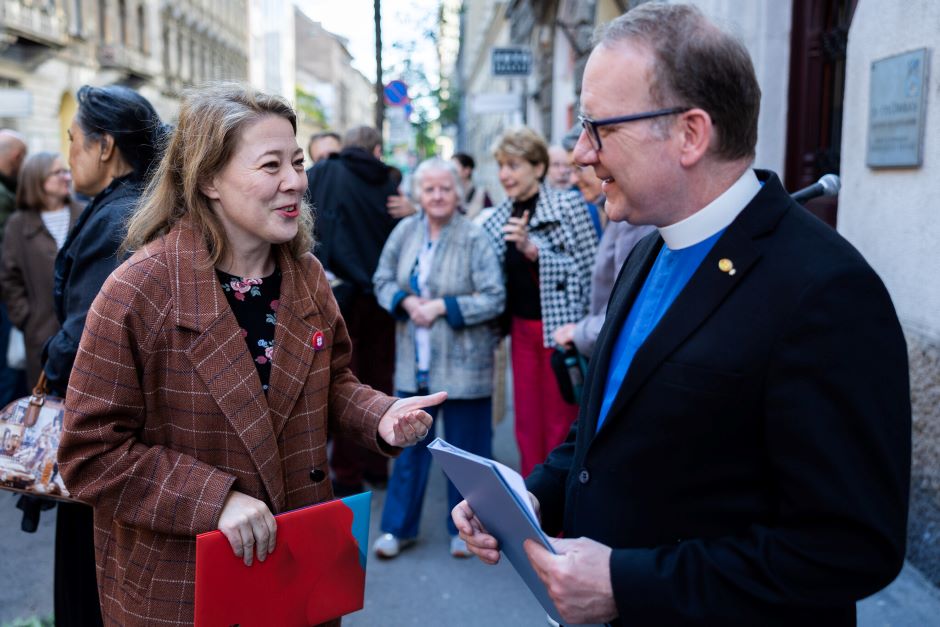
Three former pupils of the school, where Miss Haining served from 1932-1944, also attended.
Daisy Surányi is now 91 years old and has only recently started to decline invitations to speak about the Holocaust and remembrance, but was pleased to return to her old school and be reunited with other pupils.
Ágnes Vámos recalled that when she was at St Columba's Church for the 175th anniversary celebrations in 2016, she suggested that a Stolpersteine memorial stone be placed in Miss Haining's memory, so she was especially pleased to see that finally happen.
Borbála Juhász lived in the school's dormitory and remembers Miss Haining personally and could be the last person alive with such a memory.
Lidia Bánoczi, a great-niece of Margit Prém, was instrumental in organising the occasion and hung a home-made tartan-themed wreath under the plaque.
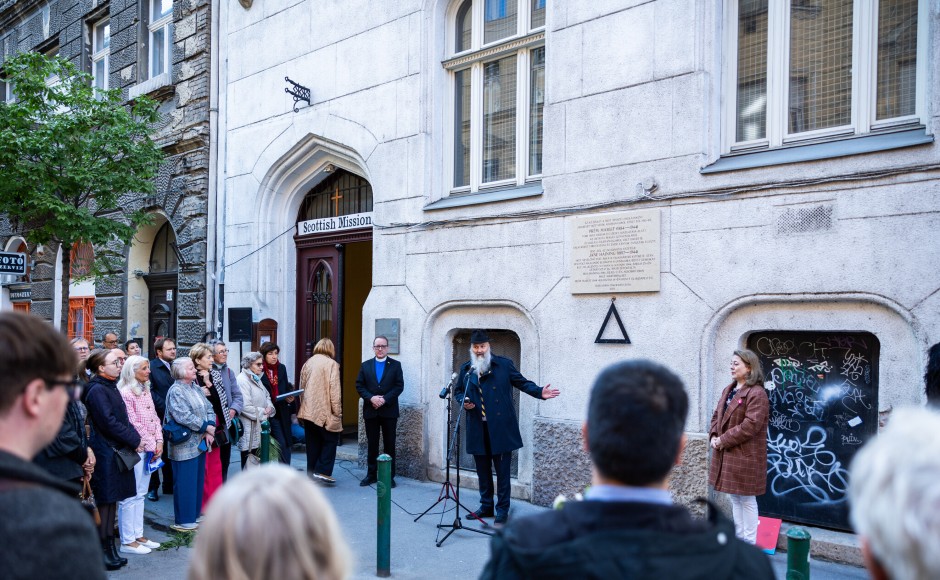
Hungarian piper György Kéri played while the Stolpersteine memorial was placed in the pavement after which the crowd entered the church for a bi-lingual act of devotion led by Mr Stevens.
He focussed on Psalm 121 which was important to Miss Haining, and Psalm 90, which is treasured by the Hungarian Reformed Community and still remembered by the pupils who learned to sing it at the Scottish Mission School.

Rev Ian Alexander, who leads on international partnerships for the Church, met many of Miss Haining's former pupils when he visited St Columba's Church in 2016 to mark its 175th anniversary.
"We are delighted that a new plaque and stolpersteine has been unveiled outside the church in honour of Jane Haining and her friend and colleague Margit Prem," he said.
"Both women showed tremendous courage in the face of intolerable evil during a dark period of history.
"Miss Haining was fully aware of the risks she was taking but repeatedly refused to leave Budapest and return home to Scotland as the war engulfed Europe.
"She was determined to continue doing her duty and stick to her post, saying ‘If these children need me in days of sunshine, how much more do they need me in days of darkness?'.
"Miss Haining was simultaneously an ordinary and extraordinary woman and her inspirational story is one of heroism, personal sacrifice and heartbreak, reminding us that when we feel powerless, there is always something that we can do."
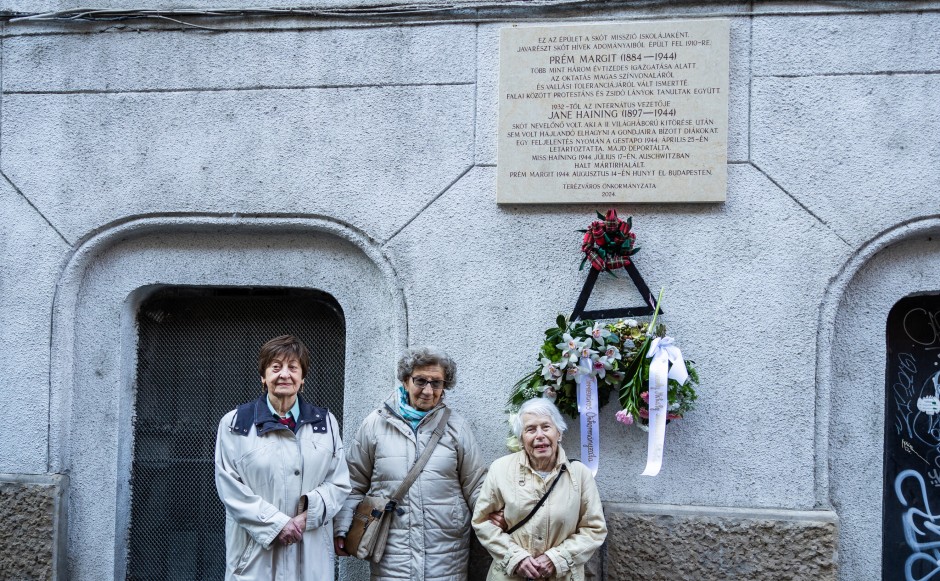
Miss Haining's selfless bravery in protecting the children in her care at the expense of her own life led to her being posthumously awarded a Heroine of the Holocaust medal by the UK Government.
She is the only Scot to be named Righteous Among the Nations at Yad Vashem in Jerusalem, Israel's memorial to victims of the Holocaust.
Miss Haining's life is celebrated at Dunscore Church and Queen's Park Govanhill Church in Glasgow – the church she attended while living in the city prior to her move to Budapest.
In 2021, a new street called ‘Haining Park' near Loanhead in Midlothian was named for her.
